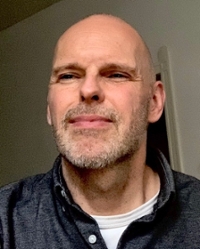
Stephan Raaijmakers

Stephan Raaijmakers is an expert in natural language processing with machine learning/AI methods. He works on various topics in security, health and government. He holds a chair on Communicative AI at Leiden University, focusing on natural language-based dialogues of humans with AI, using deep learning techniques and Large Language Models.
Professorship chair
Communicative AI (University of Leiden).
Research area
The chair addresses communicative AI: AI that engages in communicative interfaces with humans. The chair focuses in particular on deep learning and natural language processing. It addresses the implementation of explanatory, natural language-based facilities in AI, and explicitly seeks connection with neurocognition, neuro/-psycholinguistics and general linguistics - disciplines that resort under LUCL.
Further, the chair enforces the connection with LIACS (Leiden Institute of Advanced Computer Science) and the digital humanities community in Leiden (LUCDH, Leiden University Center for Digital Humanities) and the Netherlands. The professorship reflects TNO's orientation on trustworthy, transparent and controllable AI and will contribute to a better knowledge position for TNO on human-AI interaction.
Top publications
- Brewster, C., Nouwt, B., Raaijmakers, S., & Verhoosel, J. (n.d.). “Ontology-based access control for FAIR data”. Data Intelligence, 2(2020), 66–77.
- Stephan Raaijmakers. “Deep learning for natural language processing”. Manning publications, prepared for paper edition in 2021, published in paper Spring 2022.
- Raaijmakers, S., & Brewster, C. “Exploiting Ontologies for Deep Learning: A Case for Sentiment Mining”. In Proceedings of the 14th ACM International Conference on Semantic Systems, Posters and demo track, 2018.
- Raaijmakers, S., Sappelli, M., & Kraaij, W. “Investigating the interpretability of hidden layers in deep text mining”. In Proceedings of the 13th ACM International Conference on Semantic Systems, pp. 177-180, 2017.
Den Haag - New Babylon
Anna van Buerenplein 1
2595 DA The Hague
The Netherlands
Postal address
P.O. Box 96800
2509 JE The Hague
The Netherlands